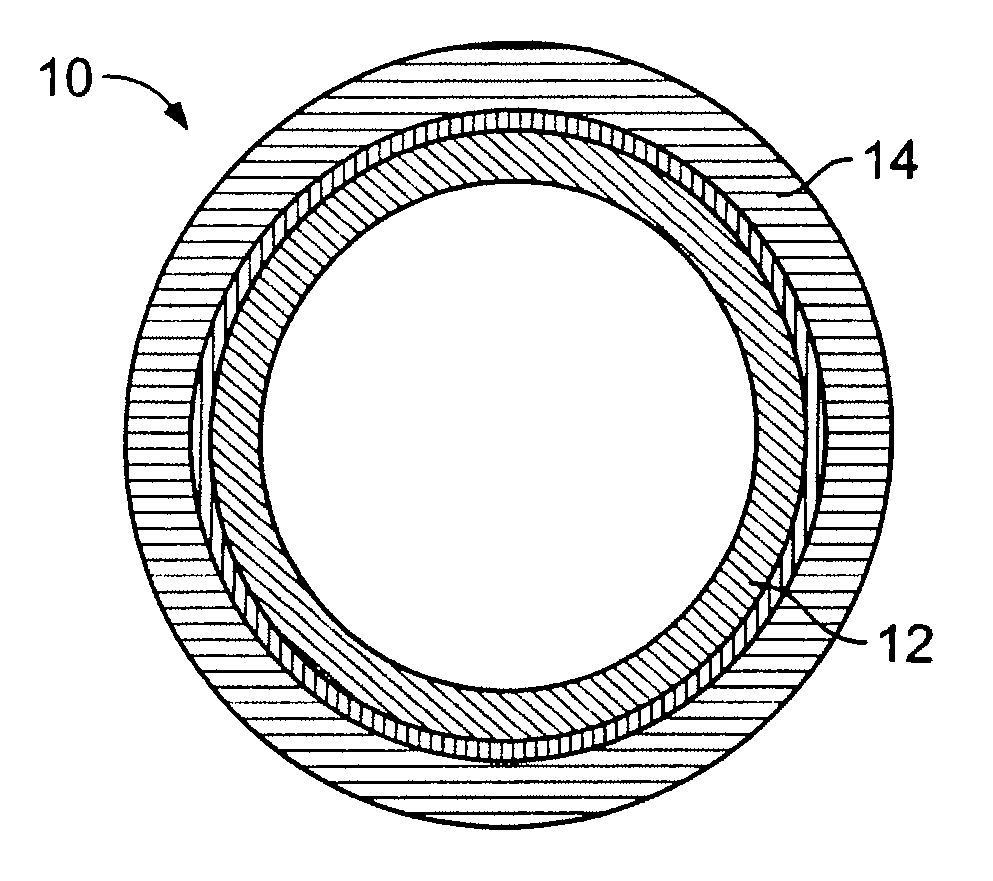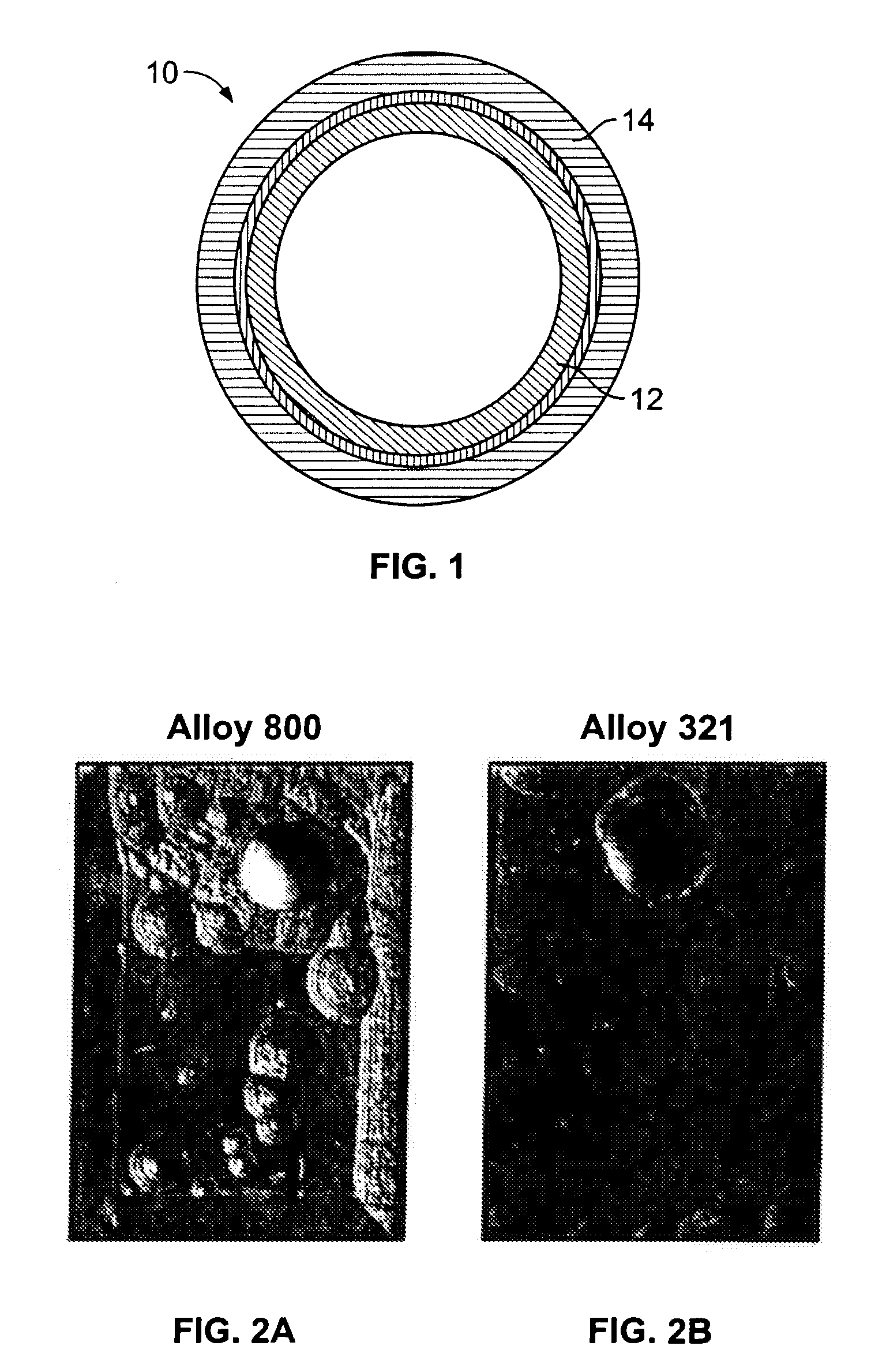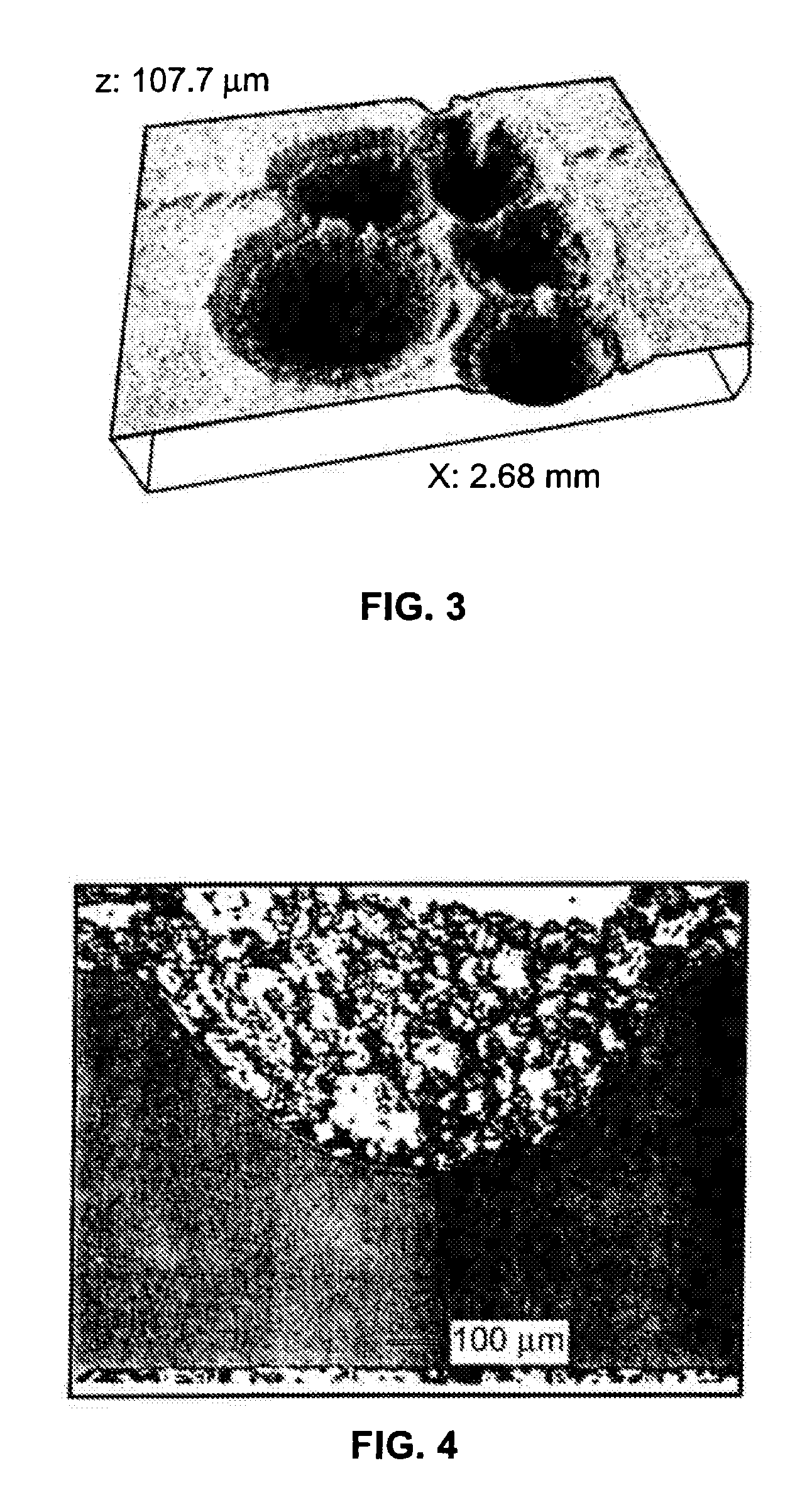Nickel based alloys to prevent metal dusting degradation
a technology of nickel-based alloys and alloy compositions, which is applied in the direction of superimposed coating processes, machines/engines, transportation and packaging, etc., can solve the problems of reducing the fe-containing spinel phase to form, unable to stop the diffusion of carbon into alloys, and still able to diffuse carbon through oxide defects, etc., to prevent metal dusting, excellent material, and low solubility and diffusion rate of carbon in copper
- Summary
- Abstract
- Description
- Claims
- Application Information
AI Technical Summary
Benefits of technology
Problems solved by technology
Method used
Image
Examples
examples
[0060]The test program included eight Ni-base wrought alloys, predominantly those which are commercially available. Table 3 lists the nominal chemical compositions of the alloys. The alloys had complex chemical compositions and contained Cr (in a range of 15.4-28 wt. %) and several other elements, such as Mo [alloy 617 (UNS N06617)], Al [601 (UNS N06601), 617 (UNS N06617), 602CA (UNS N06025), 214 (UNS N07214), and 693 (UNS N06693)], and Si [45™ (UNS N06045) and HR 160 (UNS N12160)]. Alloy 690 (UNS N06690) containing 27.2 wt. % Cr, but without additions of Si, or Mo, or Al was also included in the study. Further, several alloys contained Nb, W, and Co, which can also influence the oxidation behavior of the alloys and their resistance to metal dusting attack.
TABLE 3Nominal composition (in wt. %) of alloys selected for the study.AlloyUNS.CCrNiMnSiMoAlFeOtherN066010.0321.961.80.20.20.11.414.5Ti 0.3,Nb 0.1N066900.0127.261.40.20.10.10.210.2Ti 0.3N066170.0821.653.60.10.19.51.20.9Co 12.5,Ti...
PUM
| Property | Measurement | Unit |
|---|---|---|
| temperatures | aaaaa | aaaaa |
| temperature | aaaaa | aaaaa |
| temperature | aaaaa | aaaaa |
Abstract
Description
Claims
Application Information
 Login to View More
Login to View More - R&D
- Intellectual Property
- Life Sciences
- Materials
- Tech Scout
- Unparalleled Data Quality
- Higher Quality Content
- 60% Fewer Hallucinations
Browse by: Latest US Patents, China's latest patents, Technical Efficacy Thesaurus, Application Domain, Technology Topic, Popular Technical Reports.
© 2025 PatSnap. All rights reserved.Legal|Privacy policy|Modern Slavery Act Transparency Statement|Sitemap|About US| Contact US: help@patsnap.com



